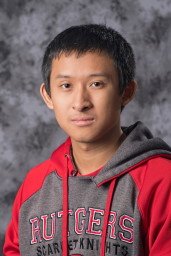Faculty, Staff and Student Updates
Faculty Awards
Professor Cynthia Cattell named Distinguished Professor
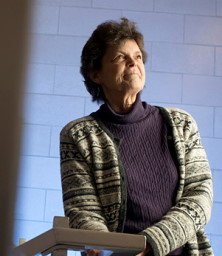
The professorship honors exceptional faculty for their efforts in and contributions to teaching and scholarly research and for their genuine commitment to the College of Science and Engineering and its activities. CSE Distinguished Professors receive a one-time award of $15,000 to be used for professional development or research.
Professor Lucy Fortson received George W. Taylor Award from the College of Science and Engineering
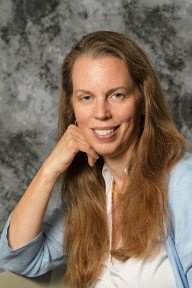
MIfA Professor Lucy Fortson received the 2020 George W. Taylor Award for Distinguished Service which, established in 1982, recognizes outstanding service to the University and voluntary public service to governmental or other public groups. Dr. Fortson is honored to receive this award as it recognizes her long-standing efforts in engaging the public in the process of research through the Zooniverse citizen science platform. Dr. Fortson is a co-founder of Zooniverse which today engages over 30,000 Minnesotans and 2 million participants worldwide with several hundred projects ranging from astronomy to zoology including several directly linked to MIfA research teams: Galaxy Zoo, Galaxy Zoo: Clump Scout, Radio Galaxy Zoo, Muon Hunter and Supernova Hunter. (make the research teams hyperlinks that link to their sites):
- Galaxy Zoo: https://www.zooniverse.org/projects/zookeeper/galaxy-zoo/
- Galaxy Zoo: Clump Scout - https://www.zooniverse.org/projects/hughdickinson/galaxy-zoo-clump-scout
- Radio Galaxy Zoo: https://radio.galaxyzoo.org
- Muon Hunter: https://www.zooniverse.org/projects/zooniverse/muon-hunter-classic
- Supernova Hunters: https://www.zooniverse.org/projects/dwright04/supernova-hunters
Recent MIfA Grants
Professor Bob Lysak received a $1 Million NASA award titled Theory and Modeling of Magnetosphere and Ionosphere Coupling and Auroral Particle Acceleration at Earth and Jupiter
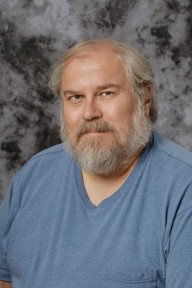
The aurora (northern and southern lights) are a beautiful manifestation of the influence of solar activity on the Earth. However, the aurora are not confined to Earth; other magnetized planets such as Jupiter and Saturn also have auroral displays. The aurora at Jupiter is particularly interesting at present since NASA’s Juno satellite is in polar orbit around Jupiter and directly samples the region where auroral particles are accelerated. NASA has recently awarded a grant of $1.05 million over 3 years to the University of Minnesota for Principal Investigator Robert Lysak and Co-investigators Yan Song and John Wygant to help understand the processes that accelerate auroral particles at both Earth and Jupiter and to compare these processes in these very different environments. Their work will help understand why the aurora at Earth is often associated with electrons having a well-defined energy while at Jupiter, the electrons usually have a wide range of energies.
Professor Lindsay Glesener and Space Physics collaborators received another FOXSI award through NASA titled: High Resolution Focused X-ray Observations of the Sun
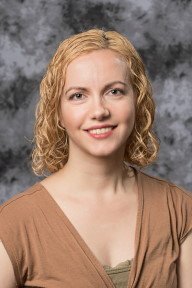
FOXSI-4 will be the fourth flight of the FOXSI sounding rocket experiment to capture hard X-ray images of the Sun, and the second flight led by UMN. New for this flight is the use of high-resolution hard X-ray mirrors, and the payload will fly in a dedicated solar flare campaign from the Poker Flat Research Range in Alaska. This will be NASA’s first solar flare rocket campaign. FOXSI is a collaboration between UMN, UC Berkeley, NASA Goddard and Marshall Space Flight Centers, the Kavli/IPMU in Tokyo, the National Astronomical Observatory of Japan, and Nagoya University.
Professor Michael Coughlin received an NSF award titled Extending the Reach of Gravitational-Wave Detectors to Detect Post-Merger Signals from Binary Neutron Stars
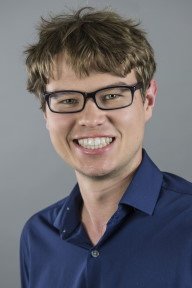
Through this award, we will be continuing to build an exciting multi-messenger astronomy focused program here in MIfA. The research focuses on using gravitational-wave data from the now global network of detectors such as LIGO and Virgo to search for unmodeled and otherwise not yet discovered gravitational waves. We are also pioneering the use of machine learning algorithms to not only detect these sources but also mitigate the effects of detector noise in these searches; these algorithms in particular help us to find, understand, and remove the noise that traditional algorithms cannot.
MIfA Transitions
Professor Larry Rudnick retired in Spring 2020
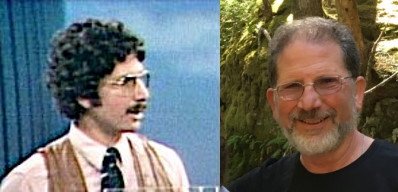
Lawrence Rudnick retired at the end of Spring, 2020, after an auspiciously valued 42 years at the University. From the virus-safe comfort of his front porch computer station, Rudnick continues his research in the interactions between radio galaxies and the surrounding thermal plasmas in clusters of galaxies. Free from the pressures of building a career, he has taken on mentorship and leadership roles in a number of international projects with new and repurposed radio telescope arrays in Australia and South Africa, as well as the U.S.. After 27 years of work culminated in the opening of the Bell Museum Planetarium, Rudnick has now turned his outreach initiatives in a new direction. He is engaging in conversations with religious leaders and their flocks about how people of faith seek to integrate the questions and insights from science into their views of our place in the universe. Yes, retired, but stay tuned!
Professor Michael Coughlin hired as Assistant Professor in January 2020
I am very excited to come back to the Twin Cities, where I grew up, to join MIfA. I am building a group working in this new era of multi-messenger astronomy, in particular in collaboration with the Laser Interferometer Gravitational-wave Observatory (LIGO) and Zwicky Transient Facility (ZTF) collaborations. I have come to UMN after graduate school at Harvard University and a post-doctoral fellowship at the California Institute of Technology. Fun Fact: Michael is a competitive ballroom dancer in his spare time - you can typically catch him down at Cinema Ballroom in St. Paul or other dance studios around town a few times per week.
Katie Sauer hired as new MIfA Administrator in April 2020
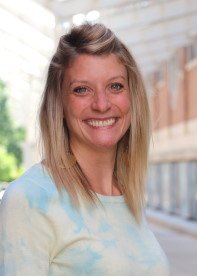
I graduated from the University of Minnesota in 2011 with a degree in Mathematics and a minor in Retail Merchandising. I started working at the UMN as a student in the Mechanical Engineering payroll department in 2009. After graduation, I left the UMN for a few years to explore my desire to learn more about fashion merchandising and management. In 2015 I came back to the University and worked in both payroll and accounting positions. I became a Certified Approver in September 2019, which expanded my skill set and understanding of policies and procedures.
Most recently, I started the position as the administrator at the Minnesota Institute for Astrophysics in April 2020. This is my first administrative position so learning the ropes during quarantine has been unique and entertaining. I am excited to be a part of the MIfA team and cannot wait to meet everyone in person someday! I also enjoy running, shopping, doing puzzles, and drinking coffee!
Incoming Graduate Students
Ann Isaacs
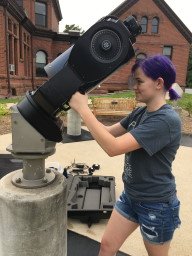
Ann Isaacs is from just north of Chicago, IL, and went to undergrad at Carleton for her physics degree. She is most interested in high energy astrophysics and astronomical transients, as well as cosmology and large-scale universal structure. Outside of physics, she enjoys biking, writing, hiking, and knitting.
Draco Reed
My name is Draco Reed, incoming astrophysics grad student at UM. I received my undergraduate degree at the University of California - Santa Cruz. I have been working on optical follow-up of gravitational wave detections by LIGO, and have branched out this summer into light curve analysis, working with Professor Michael Coughlin's team to find periodicity, which indicates a possible compact binary system (such as neutron stars or black holes). In addition to physics, I enjoy playing violin and bouldering.
Baibhav Singari
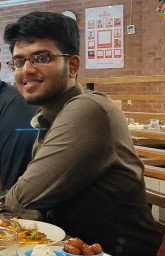
I would like to describe myself as a relatively hard-working and lucky fellow who, by virtue of his education alone has managed to reach some pretty wonderful places. I love having discussions over a cup of Americano on topics not limited to my work (for me, conversations on politics are even more addictive than caffeine). I love exploring new places and food joints alike. I recently completed my undergrad in Physics from NISER (India) and love to work on a wide range of topics related to observational cosmology, I hope to stay close to the field during my tenure as a MIfA grad as well.
Anjana Telidevara
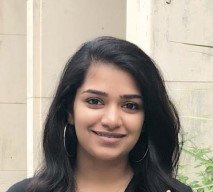
I am a first year astronomy grad student working in strong gravitational lensing with prof. Partick Kelly. I graduated with a BS in Physics and a BS in Astronomy with Honors from UT Austin. My work there predominantly involved studying the physical properties (gas, star formation rates) of extremely low-mass galaxies from the SHIELD survey. In my free time, I enjoy photography and practicing Bharatanatyam, a traditional South Indian art form.
Andrew Toivonen
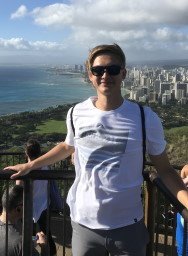
I am from Appleton, Wisconsin and am the middle child of three boys in the family. I went to the University of Notre Dame for undergrad and did research in Nuclear Astrophysics, specifically related to the effects of beta decay rates on r-process nucleosynthesis. I also participated in a REU at the University of Wisconsin, Madison, where I worked in Particle Astrophysics for the IceCube collaboration, studying cosmic ray anisotropy. At Minnesota, I plan to work in Multi-Messenger Astrophysics, and will be participating in the Data Science in Multi-Messenger Astrophysics program. This summer I started working with Dr. Michael Coughlin and LIGO studying electromagnetic counterparts to gravitational wave events. Besides physics, I enjoy outdoor activities, and spend lots of time on the lakes in Wisconsin during the summer, primarily fishing and swimming. I am also into sports, and enjoy playing pickup games of whatever anyone is willing to play: football, basketball, volleyball, and more.
Graduate students who received their Masters or PhDs in the past year
Brian O’Neill, PhD, Summer 2019
Matt Gomer, PhD, Summer 2020
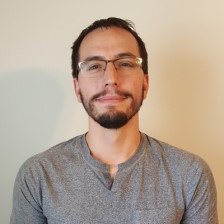
Chris Nolting, PhD, Summer 2020
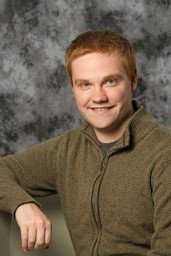
Sourabh Chauhan, Masters, Spring 2020
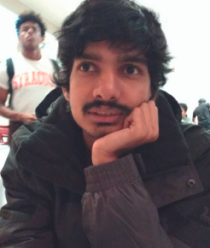
Avery Garon, Masters, Summer 2020
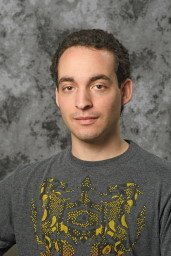
Nathan Eggen, Masters, Summer 2020
Mike Makmur, Masters, Summer 2020
